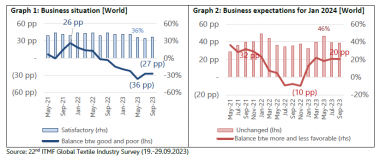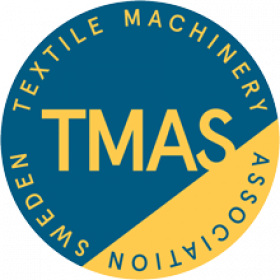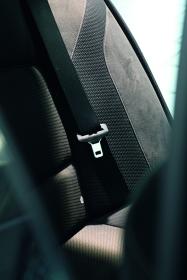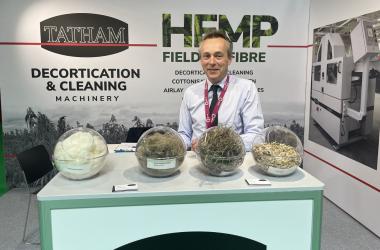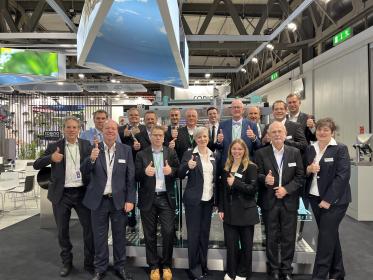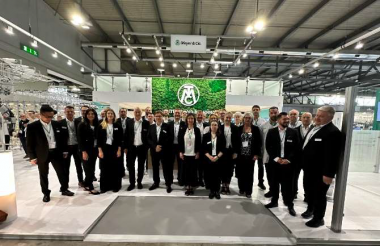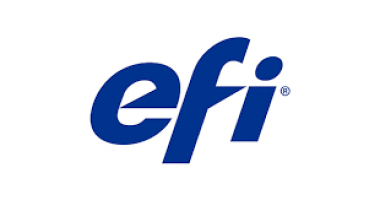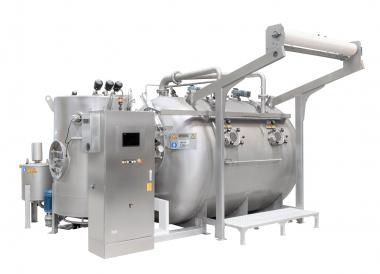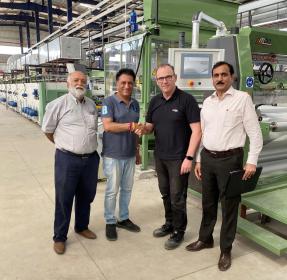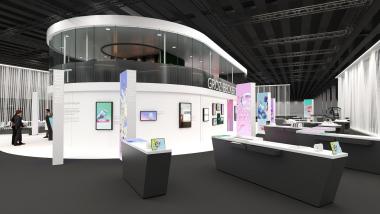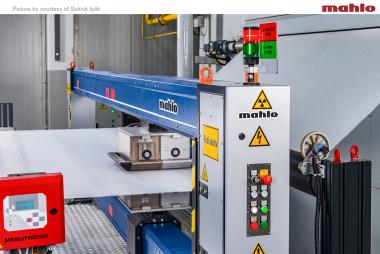15 member companies of Swiss Textile Machinery Association at upcoming ITMA Asia + CITME
In China, the textile industry is forward-looking and resilient – with a healthy appetite for new technologies and a determination to keep its leading position. Sustainability is increasingly coming into focus, so there is a growing demand for recycling technologies, as well as automated solutions and digitalization. Cornelia Buchwalder, Secretary General of the Swiss Textile Machinery Association, is clear: “China is the main market for a large number of our association members.” On top of growing consumer demand and technological capabilities, the latest ambitious five-year plan will drive further development of the Chinese textile industry in world markets, and Swiss companies will work with all stakeholders to enable its success.
Market proximity
Swiss companies realized many years ago that geographical proximity is the key to success. Stäubli has started to set up offices in Chinese cities since 1998 and counts 12 locations today, to serve the whole country. In 2002, Itema established a centralized local branch which today has 160 employees in various functions. Loepfe has expanded its presence by creating an independent local business unit to overcome the 9,000 km distance by air, while Uster Technologies has had a Chinese subsidiary since 1982, with offices and service stations in different provinces. Luwa set up its offices and workshop in Shanghai in 1997. Rieter established a presence in mainland China in 2005, driven by a strong commitment to expanding the country’s know-how and expertise – and ten years later opened an advanced research center. All Swiss companies with serious business goals in China have made similar commitments to connect with customers and maintain strong relationships.
Understanding Chinese customers
Swiss companies also understand that Chinese customers require dedicated attention, and that speed is more essential than ever in delivering both machines and services.
Manufacturers in China are seeking cost-effective solutions to remain competitive, while consumers are looking for value in their purchases. Companies need to develop solutions that provide tangible economic benefits to their clients. Furthermore, energy savings have become paramount in China, due to the government's commitment to environmental sustainability and reduced carbon emissions. “Businesses are adopting more energy-efficient processes and technologies to meet stringent energy conservation and emission reduction targets,” says Peter Schnickmann, Managing Director at Luwa Air Engineering (Shanghai). He notes an investment trend for solutions helping Chinese companies cut operational costs and minimize their carbon footprint.
To enhance the reputation of both companies and products – and boost the image of the entire industry – the environmental impact needs to decrease. Priorities are saving water and waste, as well as reducing, replacing or completely eliminating the use of harmful substances. China has a strong demand for environmental-friendly solutions and sustainable technologies.
Customer-oriented in weaving
The huge number of Chinese fabric producers calls for an immense volume of weaving machinery to be supplied by international and local providers. Swiss machinery manufacturers hold an impressive share of this business.
Chinese weavers require advanced technology, with increasingly higher standards of efficiency. In weaving preparation, latest solutions match the speed, quality and reliability now wanted. Weaving machines too offer the eco-efficiency, performance, and ease of use needed, with innovations that extend the scope of sustainable weaving, and open-platform systems configurable to weavers’ specific operations. A huge increase in demand for technical textiles in recent years has been driven by applications such as carbon fiber, aramid and glass fiber.
Profitable in spinning
China’s competitive advantages come from its large-scale and integrated manufacturing capabilities, along with the use of advanced automation and digitization technologies. Spinners aim to capitalize on extended market opportunities, with more economical production. The latest air-jet spinning machines serve these goals, allowing exceptionally low production costs per kilogram of yarn, coupled with high flexibility and reliability. Sustainable yarns are in great demand.
The automation trend in spinning mills focuses on connecting production processes. Data is used to ensure the highest quality standards, most efficient raw material usage, reduction of waste, and energy savings. To make spinning mills more competitive, latest solutions combine cutting-edge hardware, data-enabled software and renowned textile expertise.
Swissmem







